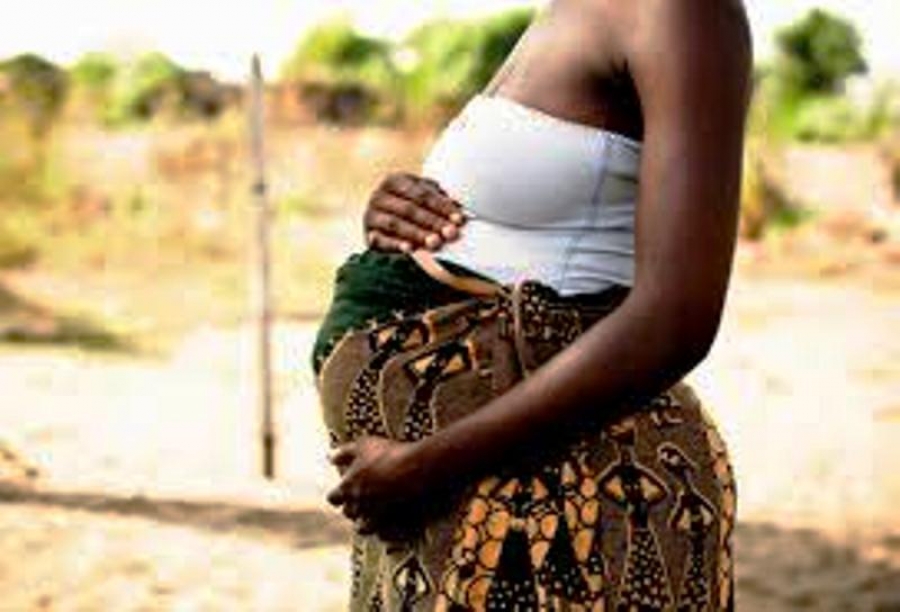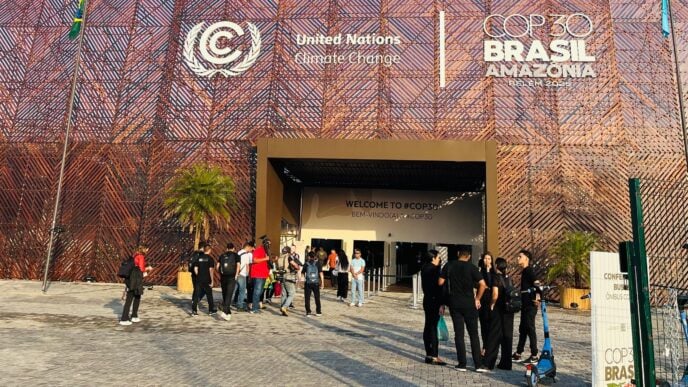BY MARY FUNMILAYO ONI
Maternal health remains one of the most pressing, yet tragically solvable, global public health crises of our time. The statistics are a stark call to action: The lifetime risk of maternal death in low-income countries is approximately 1 in 66, compared to about 1 in 8,000 in high-income countries. Overall, Low- and Middle-Income Countries (LMICs) account for over 90% of all maternal deaths globally. This devastating disparity is not a matter of fate; it is the result of deeply entrenched systemic issues.
The conventional focus on reactive, late-stage crisis management is inadequate. The path to maternal survival requires a fundamental paradigm shift toward proactive, equity-driven, and truly collaborative health stewardship. This conviction led to the launch of the “Her Life, Our Roles: Health Professionals in Maternal Care (HLOR)” convening, an initiative I founded and led through Meds & Memo. The goal is clear: to ensure care begins not at delivery, but long before.
The HLOR 1.0 event, hosted in Ibadan, was designed to bridge the gaps hindering progress in maternal care by fostering interprofessional collaboration, knowledge sharing, and dialogue among future health leaders. This initiative brought together 30 competitively selected future health professionals (trainees) across these health disciplines, including medicine, pharmacy, dentistry, nursing, public health, dietetics, physiotherapy, and psychology. Core activities included a documentary screening, plenary presentations by seasoned experts (in clinical medicine, pharmacy, and midwifery), and a hands-on workshop featuring simulated case studies that required multidisciplinary collaboration.
Advertisement
The insights gleaned from the HLOR collaboration reveal two fundamental, non-negotiable strategic pillars for achieving maternal survival: proactive risk mitigation starting at the community level, and coordinated, immediate emergency response at the facility level. Executing these goals demands a unified “Our Roles” approach across every health sector.
The Critical Window: Prioritising Pre-Conception and Prenatal Care
The majority of maternal deaths are preventable, yet conditions like eclampsia, obstructed labour, sepsis, and, critically, postpartum haemorrhage (PPH) still account for most fatalities. A major systemic failing is the late recognition of risk factors, particularly given that complications such as severe bleeding are the commonest direct cause of death in LMICs.
Advertisement
Empowering women to take charge of their health begins with robust pre-conception care and early prenatal vigilance, counselling and care even before becoming pregnant. A critical focus must be on diagnosing and managing pre-existing conditions like anaemia, which is a major, yet often treatable, contributor to blood loss complications like PPH. Effective care, particularly in low-resource settings, requires the seamless extension of the care continuum from the midwife, who serves as a constant companion from preconception to postnatal support, grounded in respectful, culturally sensitive care.
Immediate Response: The Power of Bundled Care
While proactive care is essential, every health system needs robust emergency protocols to respond decisively to crises. Like I mentioned earlier, though postpartum haemorrhage remains the leading direct cause of maternal death in LMICs, its impact can be drastically reduced through the systemic adoption of global best practices.
The HLOR convening stressed the urgent need to scale the WHO-recommended E.M.O.T.I.V.E. bundle. This comprehensive, evidence-based protocol for managing PPH is a proven system that incorporates: early detection and diagnosis; massage of the uterus; oxytocin (or other uterotonics); tranexamic acid (TXA); intravenous fluids; various examinations; and examination under anaesthesia and escalation of care. This is an indispensable tool that, when implemented through coordinated teamwork, stops bleeding progression and reduces mortality. The ready availability of safe blood is paramount to this effort.
Advertisement
Systemic Solution: Interprofessional Collaboration for HER
One of the most significant barriers to survival in maternal care is the fragmentation of care. As highlighted by the convening’s experts, “No professional can save a mother’s life alone. Multidisciplinary collaboration is the bridge between knowledge and survival.” The solution requires a unified “Our Roles” approach across every level of the health system:
Pharmacists, often underutilized, must leverage their community access to provide education (addressing the “delay in seeking care’) including counselling on essential supplements like folic acid and iron, identifying maternal health red flags for early referral, strengthen the drug supply chain, and ensure life-saving medicines like those in the E.M.O.T.I.V.E. bundle are immediately available (addressing the ‘delay in receiving adequate care’).
Policymakers must invest in seamless referral systems that integrate primary, secondary, and tertiary services, preventing deaths caused by fragmented or delayed pathways. Community engagement must respectfully integrate local wisdom, including the strategic inclusion of traditional birth attendants (TBAs), to build trust and increase care-seeking effectiveness in culturally sensitive ways.
Advertisement
To meet the Sustainable Development Goal (SDG) target of reducing the global Maternal Mortality Ratio to less than 70 per 100,000 live births by 2030, a drastic acceleration is needed. This target requires an annual rate of reduction far greater than what has been achieved historically. This can not be achieved by simply wishing for better outcomes. It demands concrete implementation strategies:
Policymakers must prioritise funding for robust referral and transport systems to eliminate the second delay, and mandate the E.M.O.T.I.V.E bundle in every delivery facility, backed by a guaranteed stock of tranexamic acid and oxytocin. Practitioners must uphold the ethic of interprofessional collaboration. While awareness and advocacy remain crucial for sustained political will, they must be relentlessly coupled with these measurable, collective actions to drive systemic change. Safeguarding “Her Life” requires a unified commitment to equity, prevention, and the immediate, practical implementation of evidence-based solutions. The next best time for us to act decisively is now.
Advertisement
Mary Funmilayo Oni is the founder of Meds & Memo and convener of ‘Her Life, Our Roles’
Advertisement
Views expressed by contributors are strictly personal and not of TheCable.











